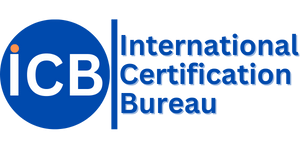Understanding Kosher Certification
The term “kosher” denotes correctness or acceptability, having informally permeated the English lexicon with this connotation. However, kosher laws trace back to biblical origins and are delineated in the Talmud and other Jewish tradition codes. These regulations, spanning ancient and contemporary rulings, shape ICB’s kosher certification, adapting to evolving circumstances over centuries.
While you might be acquainted with some well-known kosher prerequisites, the breadth of unfamiliar regulations might surprise you.
Our industry-relevant kosher certification process offers a globally applicable solution, aligning in standards and quality with recognized food schemes. It aids in meeting the demand for authentic and safe kosher-certified food.
The prevalence of kosher symbols on food is growing. Approximately one million products boast kosher certification, with consumers annually spending over USD 200 billion on them. Kosher food certification opens doors to a market that has expanded over 15% in recent years and continues to grow.
Kosher Certification and Compliance Services
We provide a comprehensive kosher audit, certification, and compliance program, encompassing the following supplementary services:
- Customer Satisfaction Enhancement
- Process Improvement
- Product Enhancement
- Pre-Qualification and Requests for Quotation
- Operational Efficiency Enhancement
- Internal Auditing
- Risk Management
- Training and Competency Development
- Brand and Reputation Enhancement
- Gap Analysis
- Technical Support and Advice: Addressing potential practical and in-factory implementation challenges
- Training: Offering face-to-face, online, or blended modular courses covering technical, regulatory, national, and international kosher requirements and practical implementation.
Why Choose Kosher Certification from ICB?
In addition to our kosher food certification services, we offer a comprehensive range of food safety and quality services, auditing and certifying compliance with global food industry standards such as FSSC 22000, BRC, IFS, SQF, and HACCP.
Contact ICB today to discuss your kosher certification requirements.
Benefits of Kosher Certification
For adherents of kosher dietary laws, certification ensures compliance. However, even for those not following kosher practices, kosher-certified products signify higher quality. By obtaining kosher certification, consumers trust that products were manufactured in scrutinized environments, ensuring accurate labeling regarding dairy or meat content. Offering a line of kosher-certified goods builds consumer trust, providing third-party validation of product claims.
Food manufacturers with kosher certification enjoy broader market reach. Consumers respond positively to kosher certification labels, making kosher-certified products more appealing to retail outlets, thereby expanding their market potential.
